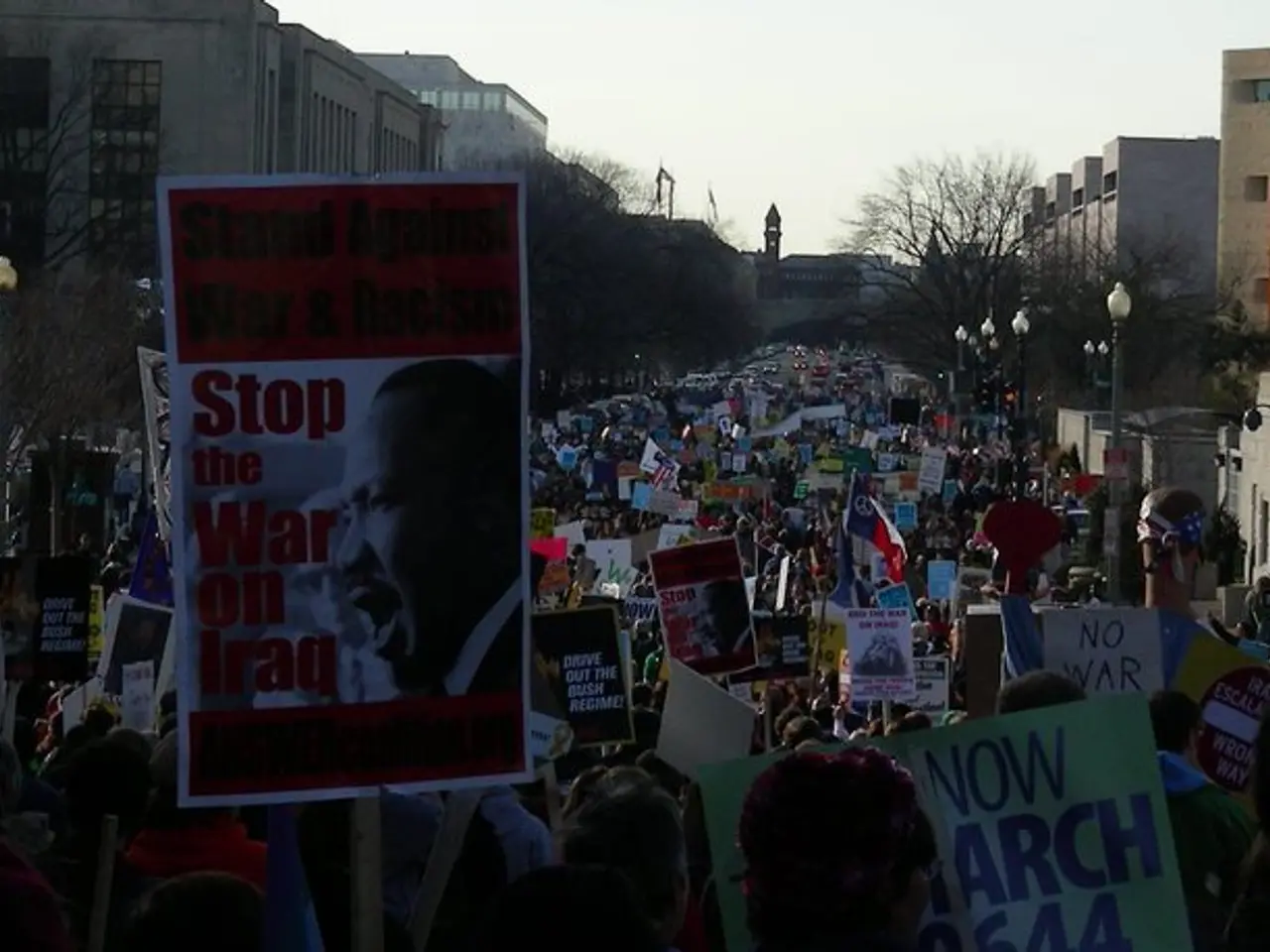Unyielding Serbian leader promises firm action against demonstrators, escalating tension post-riots
The ongoing protests in Serbia, initially sparked by a railway station collapse in late 2024, have escalated significantly over the past few days. Thousands of people have taken to the streets in various Serbian towns, including Belgrade and Novi Sad, despite President Aleksandar Vucic's threats of a crackdown.
The protests have been met with a strong government response, involving heavy deployment of riot police using tear gas and physical force. Video evidence shared widely on social media has shown beatings and arrests of protesters, including minors, leading to accusations of police brutality and human rights violations.
Opposition figures and protesters accuse the government of systemic violence and repression aimed at quelling dissent. For instance, an opposition lawmaker reported being beaten by masked men following demonstrations. These incidents have shocked the public, fuelling criticism that Vučić’s regime is resorting to authoritarian measures to maintain control.
The protests began as a largely peaceful anti-corruption and democratic reform movement following the fatal railway collapse, widely seen as emblematic of government negligence and corruption. However, provocations and violent responses from government-aligned forces have contributed to a shift towards more confrontational clashes.
In response, Vucic has accused the anti-government demonstrators of "pure terrorism" and claimed that months of protests against his rule have been orchestrated in the West. He has also praised Russia's backing for his government against what he called a "colored revolution" against his government.
Despite these allegations, Vucic has not specified the state response, but he stressed that a state of emergency is not imminent. However, he warned that unless tougher steps are undertaken, it is a question of days before the protesters kill someone.
The protests have led to numerous detentions and injuries. Riot officers have used tear gas against demonstrators who hurled stun grenades, flares, and bottles at them. In some instances, protesters have torched offices of Vucic's governing Serbian Progressive Party and other ruling coalition allies.
Many in Serbia blame the tragedy on alleged widespread corruption in state-run infrastructure projects that they say fueled poor renovation work. The incident has further fuelled demands for early elections and an end to corruption.
As the situation continues to escalate, the future of Vucic's increasingly autocratic rule remains uncertain. The protests represent a significant challenge, highlighting issues of democratic backsliding, alleged human rights abuses by police and masked enforcers, and widespread demands for political change in Serbia.
- The escalating protests in Serbia have caught the attention of the international community, with concerns about war-and-conflicts and human rights violations in Europe being raised in general-news topics.
- As the world watches, the ongoing political standoff between President Aleksandar Vucic and the protesters in Serbia is a significant test of the country's commitment to democracy and the rule of law.




